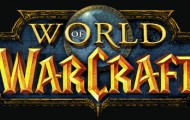Want to know a dirty little secret about the video game industry? Many top executives and even some developers don’t even play their own games. It seems crazy but it’s true.
I know this after doing 15 years of deep analysis of fantasy virtual worlds, talking to people in the industry, and working in the industry as both a designer and a consultant.
The most glaring example of this came last week when Blizzard President J. Allen Brack made the shocking and preposterous claim that the World of Warcraft of 2020 is just as social as it was when it was released back in 2004.
Here’s what he said in the quarterly earnings call with Activision/Blizzard investors:
World of Warcraft has been fortunate to be engineered as a very social experience, and that’s as true today as the day we launched.
This statement that the WoW of 2020 offers an equivalent social experience of the WoW of 2004 is blatantly false. Ask any veteran WoW player who has played since 2004 and if they are honest, they will confirm this.
Mr. Brack’s perplexing statement leads a serious person to conclude: 1) he is outright lying or 2) is ignorant of what is really going on in WoW and does not play WoW with any degree of regularity if at all.
The principle of charity in philosophy dictates that we should always assign the best possible motives when analyzing a statement or argument. Therefore, I do not believe that Mr. Brack is lying. Instead, I think Mr. Brack is so out of touch with the WoW player experience that he honestly believes it is just as social when it was released.
What is the Social Experience of a MMORPG?
The social experience one gets when playing a MMORPG is the signature characteristic that makes this video game genre unique.
In a nutshell, the social experience is the sum total of the camaraderie, fellowship, bonding and friendships that result as a by-product from players banding together in groups and raids to face shared adversity and challenges that are presented to them as they explore the game world.
The guild experience in a good MMORPG feels like that bar in the TV series Cheers — where everybody knows your name. They know your name because they need you and you need them.
Most large raiding guilds in MMORPGs are like a travelling version of the Cheers tavern, with a raiding schedule where they plan to meet at a predetermined time and place to attempt to defeat a uber villain. There is a real sense of camaraderie in guilds. Every player has a distinct role in the raid and players feel a sense of obligation to log on to help their fellow guildies long after they have gotten all the loot upgrades they need. The human tendency to value reciprocity is a powerful motivator in MMORPG guilds.
MMORPGs have an unusually high retention factor as long as there are enough new things a player can do to progress their character. In a normal video game, when one has experienced all the content and defeated the final boss, the game is over. However, in a MMORPG, knowing that your friends and guildmates are online as well gives the player additional incentive to log on.
The stickiness of the social experience of MMORPGs like EverQuest and World of Warcraft have kept me and other gamers playing these titles for over 20 years. It is why MMORPG players have the highest level of customer retention in the industry and are the most loyal of all video gamers and why they continue to pay subscription fees month after month.
The social experience in a MMORPG does not come by accident. It is carefully planned, designed, and promoted from initial release and promoted with every expansion. But over the years the social experience of MMOs has been under attack by the influence of greedy investors and the indifference of designers.
The Value of Social Currency in a MMORPG
In a highly social MMORPG or virtual world, a player’s social skills and their reputation is a form of status and social currency. Without good social skills and a good reputation, a player will have trouble finding groups and thus will not be able to advance their characters by slaying monsters and acquiring experience and loot.
Even the most anti-social MMORPG player soon realizes that in order to progress you need to learn to talk to other players.
A good MMORPG developer will endeavor to create a game world, with conflict, obstacles and mechanics and features that requires player cooperation and as a result promotes the social experience. Class interdependency where each class brings something to the table and compliments the weaknesses of other classes is one such mechanic. Players know that it is safer and efficient to band together than it is to face the hardships and danger of the game world alone.
Most importantly purposeful class interdependency creates a powerful synergy where the whole is greater than the sum of its parts. Think of a football team where every member of the squad is performing in perfect harmony with everyone else. That team can accomplish great things when they work together, each complimenting each other’s strengths and weaknesses.
That synergy is the rare magic that only the MMORPG video game genre possesses.
When class/group interdependency is eroded, then the social nature of the MMORPG commensurately erodes.
Soloing to the level cap is a good example of this. If players can solo everything and/or use mechanics to get groups and never need to speak with another player, then they will be cheated out of the social experience that the MMORPG is advertising.
I have spent years on this website authoring a multitude of articles dedicated to exposing the incremental degradation of the social experience in MMOs like WoW. Explaining the social nature of MMORPGs in great detail is beyond the scope of this article. Here are some links to previous articles:
WoW: The First Single-Player MMORPG
Single player video games have no player to player social experience. So by their very nature, they are a solo, non-social experience.
Today in WoW retail, you can easily level up to the highest level, group and raid with others all by a press of a button and without ever having spoken to anyone. Social interaction has been almost eliminated completely in WoW. You can even buy and sell to other players via the Auction House with zero human contact.
If J. Allen Brack actually played WoW over the years with any degree of enthusiasm and regularity, he would know that his MMORPG barely has any mechanics left that facilitates and promotes a deep social experience to their players. Sadly, most mechanics that promote social cohesion and interdependencey have systematically stripped away over the years.
Why did they do this?
As former Blizzard CEO Mike Morhaime just revealed, they did it to make WoW into a more of single-player, solo-friendly MMORPG with the hope they could broaden its demographic appeal and make more money. Not only did they want to attract new subscribers, they wanted those solo players with limited social skills to keep subscribing so they make finding groups and even raids possible by pressing a button.
With the addition of this ill-thought conveniences, suddenly the classic notion of a dungeon crawl shared by adventurers was turned into a banal transaction between strangers.
Therefore, the only plausible explanation I can offer for Brack’s preposterous statement is that he is not actually playing the MMORPG he has been allegedly working on for 15 years. He seems genuinely clueless about the fact that WoW is not social today and hasn’t been for many, many years.
A president of a company should have an intimate, comprehensive, and first-hand knowledge of the products and services that his company provides. It’s puzzling that the passion that Blizzard repeatedly talks about in their propaganda and in their job listings seems non-existent here.
How can you properly service your customers when you have no idea or interest in what the customer is experiencing?
Would you patronize a restaurant where the owner and the chefs don’t eat the food and have no idea what it really tastes like?
When all Else Fails, Blame the Players
The second part of Brack’s statement is also worth taking a look at:
Over time, we’ve listened to feedback from the community, and the game has evolved to what we now call the “modern game,” which has really expanded the breadth and the depth of gameplay, as well as making it easier to kind of find friends, group up, make progress, or play alone, all within the social environment.
So, it’s the fault of the players?
While player feedback is a valuable thing, it’s not always a wise thing to give in to the demands of players. In fact, it can be quite detrimental as players who are naturally self-interested, rarely see the big picture and often advocate for their own personal desires at the expense of the health of the entire MMORPG.
While many players are skilled and knowledgeable about the games they play, they are not game designers. Game designers have a responsibility to think about the health and well-being of the entire MMORPG, not just a few players who feel entitled to more conveniences.
Red Hook studios, the creator of the masterpiece video game: The Darkest Dungeon, encountered overwhelming negative feedback from their fans when they introduced the corpse feature which was done to fix a flaw in their combat system. Undeterred, they stuck to their guns and kept the corpse feature intact and the rest is history.
Here’s a documentary about The Darkest Dungeon from The Escapist where the creators talk about the problems with player feedback:
There are many things in a fantasy world that on the surface seem like needless annoyances and hardships. But take these things away, and suddenly things become so easy that other players have no need to seek other players to overcome them. When everything is trivialized and there is no longer any challenge left, players start to lose interest and then they stop playing. This is exactly what happened to WoW as millions of players stop subscribing. The paucity of social interaction is inversely proportional to the amount of WoW subscribers.
Many of the most striking player memories are when players have surmounted great difficulties with the help of other players. Memories are the most treasured of experiences because they are unique and unscripted milestones in the player’s mind.
While listening to players is very important, a good developer must always have wisdom and discernment to put the health of the entire MMORPG first.
If MMO devs allowed the self-interest of players to dictate how things should be, the MMO would soon be destroyed. Too often, Blizzard capitulated to the ridiculous demands of WoW forum warriors and put in features that had disastrous unintended consequences such as the flying mounts, LFG tool, the Looking for Raid tool, cross-server technology — just to name a few.
However, there is a time to listen to players. When the original play experience has deteriorated to the point where the game is barely recognizable from its original incarnation.
It is very convenient to selectively listen to the players when they agree with you and but not to listen to them when they disagree.
It’s Time for New Leadership at Blizzard
J. Allen Brack is infamous for being smug, insular, defensive, and detached from the needs and wants of players. Years ago, he gave a BlizzCon attendee who requested Blizzard look into providing a classic WoW experience a snarky answer that will echo throughout eternity:
Eventually J. Allen Brack ate his words after then Blizzard CEO Mike Morhaime was convinced by ex-Blizzard by developer Mark Kern who presented him with thousands of petition signatures in support of official WoW classic servers, made it a reality.
Recently under Brack’s leadership we’ve seen a plethora of rookie mistakes and missteps. The Diablo Immortals fiasco, the Blizzchung Hong Kong over-reaction, the Warcraft 3: Reforged debacle.
If Brack is so obviously wrong about the social nature of WoW retail and consistently wrong about a host of things, what else is he wrong about?
Here’s some free advice for J. Allen Brack: Start worrying less about social engineering nonesense like diversity, inclusion, and representation and worry more about the important things like the player experience and social cohesion in WoW. Spend less time in the boardroom and more time actually playing WoW — you might actually learn something.
Not everyone has the chops to run a video game studio. I believe it’s time for new leadership at Blizzard.
Everyone at Blizzard is to Blame
The declining social nature of WoW was not an accident. It was done purposefully and incrementally to make WoW more accessible to demographics on the margins in order to generate more profits.
J. Allen Brack was not responsible for this. Everyone at Blizzard from Mike Morhaime, Jeff Pardo, Jeff Kaplan, Alex Afrasiabi, Tom Chilton, Greg Street, Ion Hazzikostas and the entire executive team to the lowly quest designer is responsible with varying degrees of culpability. Anyone with a brain and a heart had to know what was going on. They knew and they did nothing to stop it.
The emasculating and gutting of the WoW social experience for 30 pieces of silver, will be their shameful legacy in the annals of video game history.
Conclusion
Before I started playing MMORPGs in 1998, I was introverted, shy and socially awkward. MMORPGs like EverQuest that required social interaction, helped me to get out of my shell and develop social skills that benefited me in real life. I will be forever in debt to the MMORPG genre.
The shared experiences made possible by fantasy virtual worlds are my passion. I always believed MMORPGs were very special and unique. This is why I will never give up advocating for them.
The friends I have made throughout the years are a testament to their enduring power. I will never forget the things I have seen and the amazing things I have experienced in these worlds with others. Since I started frequenting fantasy virtual worlds, the scripted nature of single-player video games no longer captivates me.
This is why I will not suffer fools gladly who seek to erode the MMORPG experience that I fell in love with.



